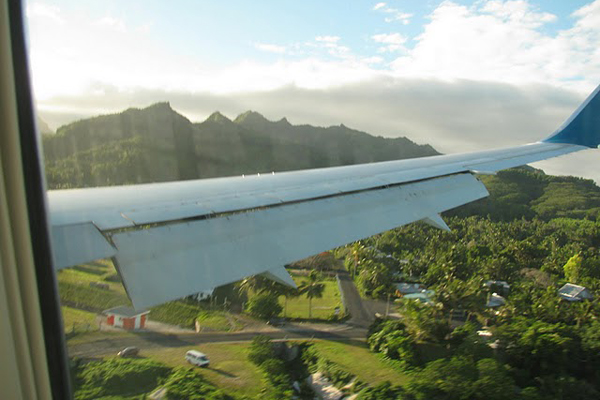Balancing Spontaneity and Preparedness
When planning that big trip I spent a lot of time daydreaming. I was going to glide from place to place with the wind; it would be amazing, we would just meet someone in a cafe in a small town who would tell a story of a lovely little island, and then we would say, “lets go”.
Well, it sort of can work that way, but enter Reality. It turns out long-term traveling has just as much to do with counting days on your visa, understanding bus routes, and knowing which day of the week an entire town is likely to shut down as it does with improvisation. Most travelers have a tendency to either over-plan every aspect of their trip, or remain blissfully ignorant under the belief that “everything will work itself out.” Here are some great tips on how to keep a healthy balance when planning your trip.
Decide On Your Countries First
First, you can’t show up at every border and walk right into the country. Sometimes you need to get Visas in advance. Even when you can get them on arrival each country has a different number of days you can stay, and it usually depends on the type of visa you applied for, what country you’re from, and if you enter overland or through an international airport.
The good news is this gives you a great framework for your trip. For trips longer than 3 months a great idea is to have “Must See” countries and then some “If there’s time” countries. Once you know your countries research the basics:
- • Seasonal weather. You have no idea how many people get caught unaware in monsoon season
• Cultural awareness. Particularly know what the appropriate dress codes are!
• Common safety warnings. Read up on scams and bad neighborhoods
• Currency/exchange rate. If you carry a smartphone, download an app for that.
• Understand all the destinations a country has to offer, and then don’t try to see them all (unless you’re giving yourself a long time to do so). I love using sites like: tripadvisor and wikitravel for this kind of information. Also, the Bootsnall forum was a great resource for itinerary planning help.
• Break your trip into “legs”. Since planning a trip lasting months or years is certainly overwhelming, break your trip up into “legs” and focus on planning the upcoming leg that may be 2 months and keeping the rest vague until a certain date.

Book A Room In Advance If…
- • It’s your first stop on the trip. Trust me, after a long-hull flight you’ll be glad a bed is waiting for you. It’s a great way to ease yourself into travel-mode as well.
- • There’s a Festival or Holiday. Heading to a Full-moon Party? Sydney for New Years Eve? Munich for Octoberfest? Sounds awesome! Book way in advance.
- • You’re traveling with more than 4 people.
- • You’re traveling in a major European city in the summer, or any place else that you’ve heard rooms book up quick. I guess it all depends how agreeable you are to sleeping in a train station.
- • If there’s a particular hostel/hotel you really want to stay at.
This may seem like a lot of scenarios but in Asia my husband and I showed up without rooms booked probably 85% of the time. Advantages are the ability to negotiate rates and see the room and location before you book, and more freedom if you get delayed traveling.
Fly Less, But If You Have To Fly…
- • Book longer/major flights at least a month in advance. Or be willing to part with more money for booking it later.
• As you plan your trip, do quick Kayak searches to confirm you can easily get between destinations. (We personally had a “no connections rule” while traveling – too much opportunity for missed flights, and lost baggage. Whatever connection city came up in the Kayak search usually became at least a 2 day stop-over destination instead)
• Check the Wikitravel airport pages to discover small airlines that you can’t book over the Internet. Yes, they still exist in some places. You show up in person and pay in cash. Really.

It All Comes Back To Your Budget
Planning correctly saves you money. Spontaneity is easy if you have a bottomless purse, but most backpackers aren’t that lucky. If you blow through your budget you only have three options: Spend even less for the rest of your trip, Go home early, find some work on the road.
• Estimate a daily budget for each country. If you don’t know what you should be spending everyday to stretch your budget for X months it’s really easy to overspend.
• Have a separate budget set aside for expenses outside the norm, like expensive attractions, activities like Scuba Diving, and splurges for special events and occasions.
• This is over-said in the travel community, but it’s true: Slower travel is cheaper travel. Don’t be in a hurry to count countries, and move out of town every third day. Your money will last you twice as long if you’re not purchasing a $100 plane ticket or $50 train ticket three times a week.
• Take vacations from traveling. Pick a few destinations without a lot to do and plan to spend a week or more. It’s a great way, to really get to know a small town, recharge, and plan the next leg of your travels. Volunteering or taking a class is recommended during these longer stays.
Don’t let all these tips overwhelm you, once you’re on the road it’s easy to find your style and travel speed. Of course, once you do your homework it’s a lot easier to concentrate on the stuff that really matters, like finding out where that island is you heard about in that cafe.
Robin Botto and her husband Tim were directors in corporate America who decided they wanted to get off the rollercoaster and take a break. They planned and budgeted for two years before quitting their jobs and taking five months to travel and volunteer in Southeast Asia and the Pacific. Before their break, they had traveled to at least 30 other countries, mostly using vacation days. You can read about their journey on their site On the Banana Pancake Trail.
Robin & Tim will also be sharing advice and inspiration at the Boston Meet, Plan, Go! event on October 18, 2011. Reserve your ticket now!






